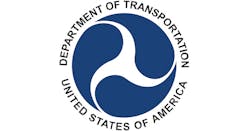DOT Opens Applications for $160M in Grants
The U.S. Department of Transportation has two new annual grant programs, totaling $160 million per year for the next five years.
SMART grants
The Strengthening Mobility and Revolutionizing Transportation (SMART) program will offer up to $100 million in grants annually and will fund projects that use data and technology to solve real-world challenges facing communities today, according to the DOT.
“As we undertake the most ambitious infrastructure investment in generations, thanks to the President’s Bipartisan Infrastructure Law, we can and must plan for the transportation needs of the future,” “From connected vehicles that make driving safer, to smart traffic signals that reduce congestion, to sensors to detect the quality of pavement to help prioritize repair, our SMART grants will fund technology that makes people’s lives better in communities across America,” said Pete Buttigieg, transportation secretary, in a prepared statement.
The SMART program will fund purpose-driven innovation and focus on building data and technology capacity and expertise. The Program seeks proposals from public sector entities that will carry out demonstration projects in the following domains:
- Vehicle technology such as automation and connectivity
- Systems innovation, such as delivery and logistics, traffic signals, smart grid, and data integration
- New ways to monitor and manage infrastructure, such as sensors and UAS
Said Dr. Robert C. Hampshire, deputy assistant secretary for research and technology, in a statement:
“SMART supports a broad portfolio of projects across the country that will serve as beacons as we move toward a transportation system that is data-driven, values-based, and technology-enabled.”
ATTAIN grants
The Advanced Transportation Technology and Innovation (ATTAIN) program promotes advanced technologies to improve safety and reduce travel times for drivers and transit riders and that can serve as national examples.
ATTAIN-eligible projects will be evaluated on how they consider climate change and environmental justice impacts—including how they reduce transportation-related air pollution and address the disproportionate impacts on disadvantaged communities. In addition, projects are evaluated on their economic impact and potential to create jobs.
“As we level the playing field and improve the travel experience for everyone, we need to promote the use of state-of-the-art technologies, and the ATTAIN program does just that,” said Stephanie Pollack, acting Federal Highway Administrator, in a statement.
Source: U.S. DOT
